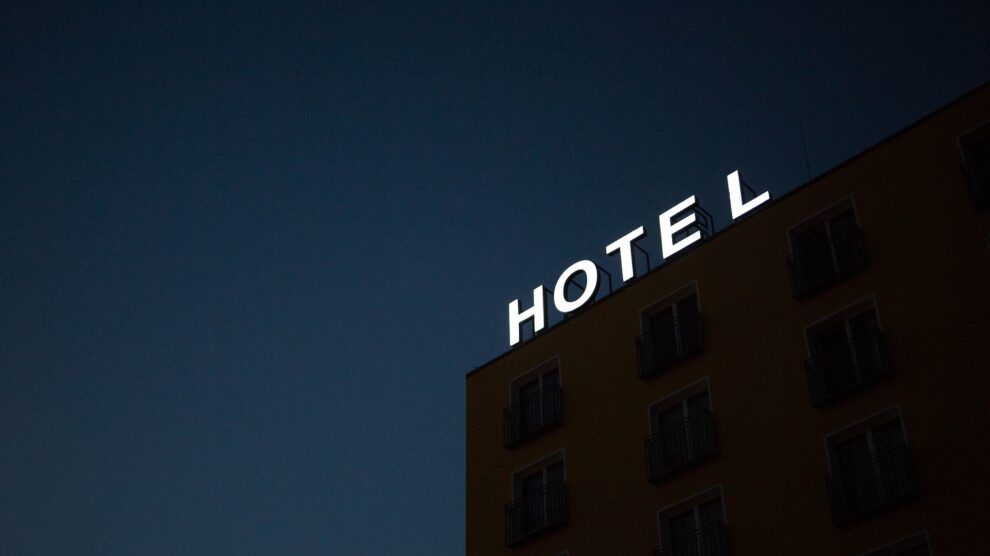Today, innovation is becoming the main characteristic of a modern economy. The relevance of smart technologies is justified by the rapid globalization of the world market and the shortening of the product life cycle. It affects all industries, without exception.
In the hospitality business, innovation affects the technological aspects of the production of the hotel’s services and marketing tools. In the face of increasing competition, hotel companies are continually developing and looking for new ways to save on costs and increase income opportunities.
Here are 10 examples of how new technologies will change the hotel business in the near future.
1. Smart Energy Management Solutions
New intelligent systems like occupancy sensors and smart thermostats can “feel” changes in the environment (fluctuations in temperature or humidity), record movements, etc. Meters transmit tracking signals to actuators. After processing the data, the system automatically turns on and off the lights and devices (heating, air conditioning, etc.).
The internal temperature control system is one of the most crucial hotel devices, but certainly not the only one. Smart lighting devices also help automate consumption. These allow hotels to establish preferred lighting times, follow occupancy models, and minimalize the total energy consumption. It also speeds up the payback period in the industry.
2. Predictive Maintenance
Predictive maintenance provides control and rate effectiveness of all hotel equipment (using low-priced devices like IoT-enabled water meters). It allows engineering personnel to avoid future system failures or malfunctions. This dramatically reduces the expenses of running a faulty system. Imagine that just one leaking toilet or sink can cost about $850 per year! What can then be said about broken heat sensors or air conditioners?
The same situation works with online control platforms, which track data related to HVAC. These platforms evaluate the effectiveness of equipment in each individual room and notify engineering teams about any critical changes.
3. Smart Guest Experiences
Hotels cannot exist without visitors. Satisfied guests are the foundation of a successful hospitality business. That’s why intelligent technologies should aim to increase expectations and create positive impressions on their customers. Of course, every hotel employee should take care of this, but technology can simplify this task significantly.
For instance, guest data with occupancy sensors can be applied to automate guest interactions during their stay. In the future, there will be even more unique devices that can further personalize customer services. They will improve hotel ratings while cutting back on expenses. What can be more attractive than that?
4. Big Data Protection
The more information hotels collect, the more responsibility they have. It is obvious. The data that a hotel collects about their guests absolutely has to be protected. The challenge is that every year it becomes harder and more expensive to do so.
For now, the medium-sized segments of the hotel market are better positioned for big-data solutions. Based on this, more hospitality business owners will adopt and finance them. Following this trend, we can predict how this industry will behave over the next 5-10 years.
5. Smart Park
Smart parking involves the use of smart sensors and apps which allow visitors to reserve a parking space right before their arrival. It provides not only a more convenient stay for guests, but also saves costs on manually running parking inventory.
Today, all hotels should maximize the digital transformation of their services. It is a must!
6. Remote Check-In and Check-Out
Remote check-in technology allows hotel staff to provide a more streamlined and convenient customer experience right from the first visit. Moreover, it helps owners save on labor costs and better controls particular staffing needs.
Likewise, self-checkouts enhance the experience that a hotel guest can receive. With the convenience of not having to wait in line to checkout, visitors are afforded the ability to arrange suitable, on time transportation to their next destination that best fits their schedule, or any other services just using the app.
7. Mobile Hotel Keys
More and more hotels are providing technologies that allow guests to enter their rooms by mobile applications. It greatly simplifies the management of stocks and purchases of plastic keycards (which are not eco-friendly). And of course, such technologies suggest extra cost savings.
8. Smart Room Service
Such technologies are mostly aimed at predicting the guest’s behavior. For example, by using smart occupancy sensors, hotels can send notifications with menu or cleaning suggestions at optimal times. Such offers may be based on personal preferences from past visits.
9. Smart Marketing
Smart technology uses data opportunities to offer hotels a complete picture of their clients. It is currently as developed as it has never been, and every year these systems are becoming smarter. Top hotel marketers use data insights to grow more competitive than other services like Airbnb.
10. Online Reputation Management Technology
Today, online reputation is one of the most crucial aspects for choosing a hotel. Guests use popular platforms to read comments and explore services before making a reservation. Moreover, such a rating can directly affect the property’s bottom line.
Besides these 10 examples, there is a vast array of technologies that hotel businesses use. They help attract and retain guests, analyze and predict, reduce costs, and increase profits. The foremost opportunity is in the data. Indeed, knowing and understanding the target audience allows hospitality businesses to fine-tune all processes and optimize services.





